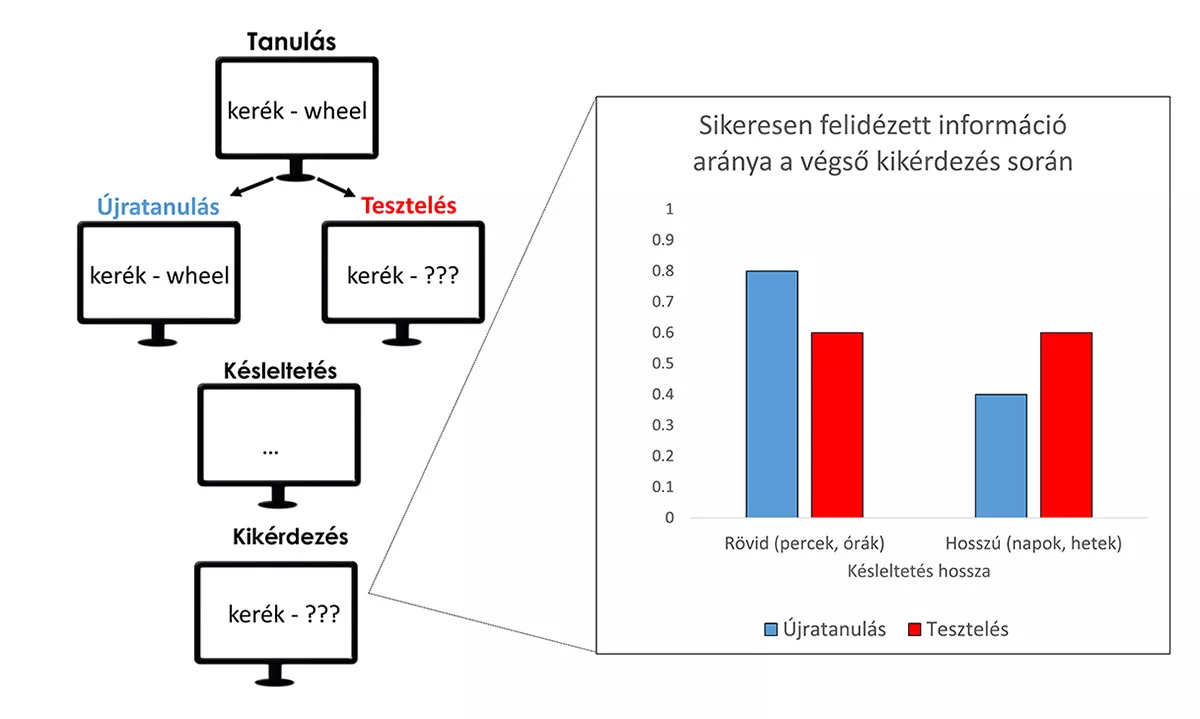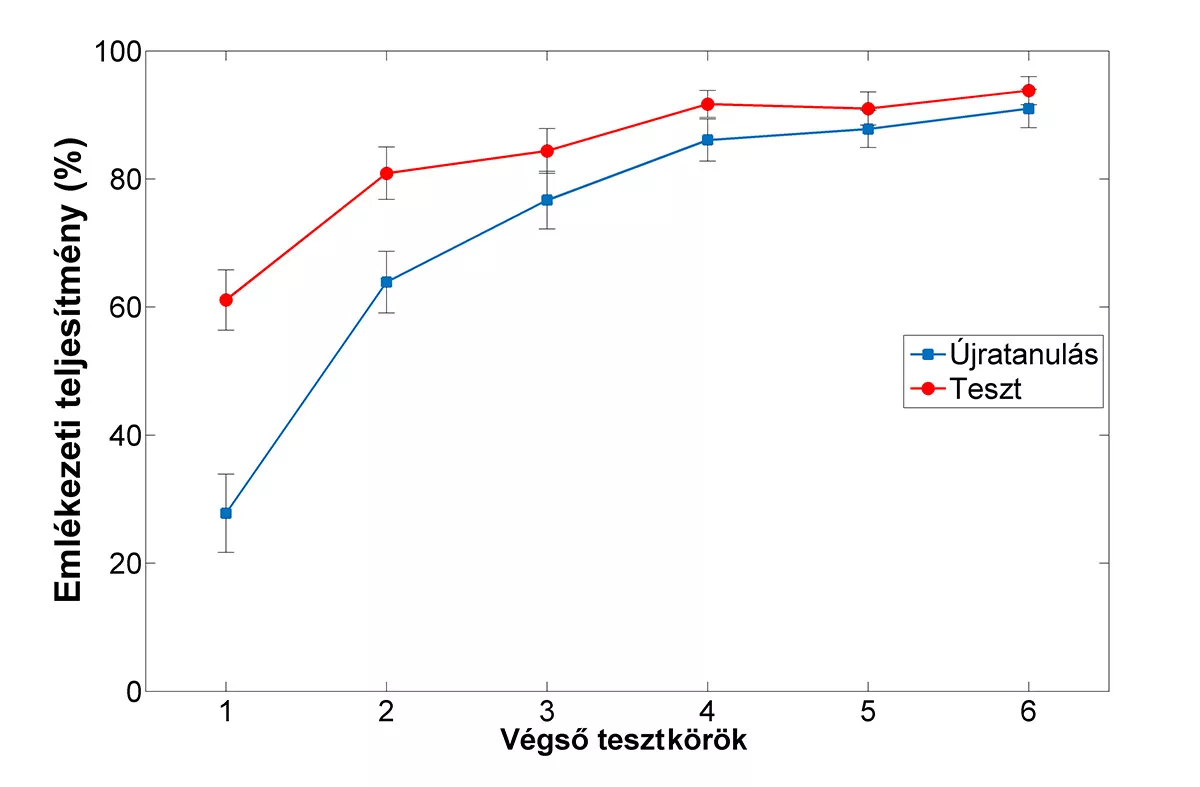In a groundbreaking psychological discovery, researchers have found that testing study materials that have been read or heard can prevent their content from being forgotten. The findings of the experimental research on memory demonstrate that tests are not only useful for establishing whether a student has learned the material, but can also be one of the most effective educational tools for people working in education.
In terms of its effects on long-term memory retention, both in laboratory experiments and in field experiments in a real school environment, the use of testing was found to be more effective than other widely used teaching methods (revision, highlighting, mind maps, note-taking, sketching, group processing, etc.). Figure 1 illustrates the difference in effectiveness between revision and testing strategies. It became clear that revising the learned materials produced better results than testing in the short term (a few minutes or an hour), but in the long term (days or weeks later), participants retained far more of the tested material. In other words, testing the learned materials led to greater retention of the information than revising the content.
-

- Figure 1 Testing has long-term benefits in learning.
Previously, the examination of the effect of testing on long-term memory retention received little attention in both experimental psychology and the field of teaching methodology. However, because the phenomenon is of fundamental practical significance in education, a number of studies over the past 15 years have sought to understand the underlying mechanisms of testing and to explore the conditions in which the positive effect of testing is less or more prevalent.
The ELKH Learning & Memory Research Group (National Brain Research Program, NAP 2.0.), led by Mihály Racsmány, also deals with the exploration of these patterns. Their research has revealed that testing acquired knowledge leads to the automization of the recollection process, which in turn becomes a skill. During repeated testing, recollection becomes faster and requires increasingly less effort. The group's nervous system research has also revealed that testing alters the operation of the neural network that plays a key role in successful memory retention. Experimental psychological and nervous system research related to testing could be the starting point for a translational pedagogical program, which in the future would involve the development of practical educational programs based on established patterns of memory and learning.
A number of teaching principles can therefore be formulated for educational methodology based on the results of the field research. For example, if initial learning is followed by test-based practice after a short time (a few minutes), performance will be improved in the long term. Moreover, the effectiveness of tests can be further increased if they do not take place consecutively, but with short breaks in between. Surprisingly, this is also true when students feel their test score has not been particularly successful. The format of the test is also significant: it seems more effective to ask students open-ended questions (such as asking them to explain a concept) than providing them with multiple-choice tests. Several studies have examined how individual differences modulate the effects of tests on memory retention, the influence of the learner’s age and prior knowledge, the ideal timing and form of learning facilitation tests, and the role of teacher feedback.
One important element of the learning process in educational methodology is that students receive feedback on their performance from their teachers and parents. In 2012, however, an American research team made an interesting and thought-provoking discovery on the subject. The experiment involved university students who learned word pairs and then, during a practice phase, revised some of the words and practiced the others through testing. One week later, the students took part in a final test where they performed better on the tested parts than on the word pairs they had revised in line with the previous results. However, during the final test, they received feedback on their performance: after each answer (whether correct or incorrect), they were shown the correct answers. Significantly, when the students' memory retention performance was subsequently checked again, the advantage of testing practice over revision-based practice disappeared.
At first glance, these results may fundamentally call into question the idea that testing can be applied effectively in all circumstances in order to maximize school performance. The ELKH Learning & Memory Research Group addressed this issue in a recent series of experiments. The initial hypothesis was that test-based learning can only be effective in the long run if the learner can successfully answer test questions during practice. This requires the student to temporarily recall the material at the beginning of the learning process, i.e. there should be at least one successful recall of the material. The data confirmed the hypothesis. If students were able to view the material in six presentation rounds at the beginning of the experiment, followed by a testing or revision exercise — that is, testing occurred when students were very likely to be able to recall words — then a week later they achieved outstanding performance as a result of the testing. The rate of loss of information was minimal, and the advantage of testing over revision did not disappear even when the teacher gave feedback on their performance repeatedly, i.e., presented the correct answer after recall (Figure 2). Overall, therefore, the results showed that memory recollection (testing) is a highly effective teaching method when the student is successfully — though with some difficulty — able to recall the learning materials at the time the test is taken. This means that testing can indeed be used reliably to increase student performance, though it is important to appropriately schedule the test during the learning process under real educational conditions.

- Figure 2 The benefits of testing were only seen in the long run if, during the initial learning, students were given the opportunity to master the material in several rounds.
The original study is available free of charge: